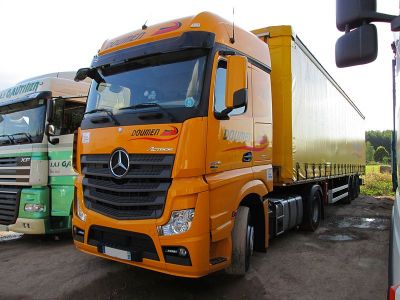The refrigerated
transportation sector is seeking energy-saving solutions to remain
competitive. As soaring fuel prices drive operating costs, companies are
taking their refrigerated vehicles off the roads and either renovating
or replacing them. About 8 % of a van or truck's total fuel consumption
is used up by its refrigeration system.
Overall, the 'Metal hydride heat pump for waste heat recovery in vans refrigeration systems' (HP-ACS)
project aims to introduce an innovative heat pump that will lead to
considerable fuel and energy savings over conventional systems, boost
vehicle efficiency and reduce greenhouse gas emissions.
The majority of refrigeration systems use a compressor that consumes
a lot of energy. Project partners estimated that compressors drive
vehicle consumption by about 15 % when in operation.
Researchers are developing a heat pump that will work by taking
advantage of the available waste heat produced by the engine. In this
way, cold is generated by the engine waste heat without expending
energy, thus completely avoiding refrigeration operating costs. This
technology has the potential to save companies up to 8 000 litres of
fuel per year for each van or truck.
The team is designing, piloting and characterising materials that
are applicable to the heat pump's hydrogen adsorption beds. It is also
looking into optimising the heat pump design for easy assembly and with
lightweight features.
HP-ACS is leading the revolution towards a cutting edge, heat-driven
air conditioning system. Tomorrow's vehicles will be energy and cost
efficient, enabling the refrigerated transportation market to remain
competitive.
 EN
EN  CS
CS DE
DE ES
ES FR
FR HU
HU IT
IT PL
PL PT
PT РУ
РУ SK
SK TR
TR УК
УК AR
AR 中文
中文







